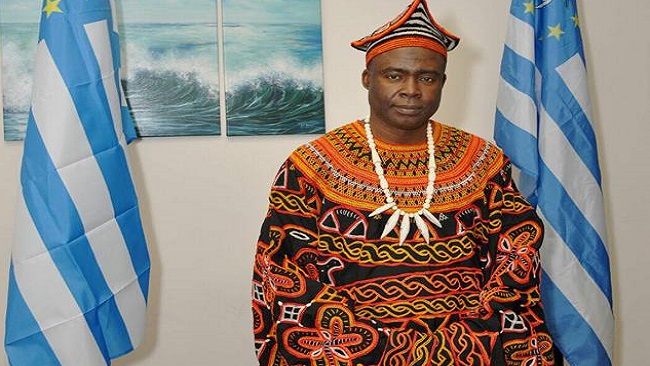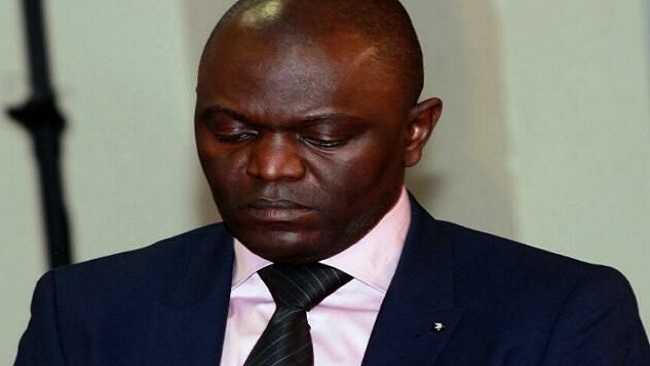5, February 2018
Mali: 4 civilians killed in militant attack 0
At least four civilians have been killed in a suspected militant attack in northern Mali over the weekend, local officials said Sunday.
An unknown number of the attackers were also killed in fighting as the “suspected militants killed at least four civilians around Talataye,” a northeastern town of around 14,000 people, regional officials told AFP.
Mali’s deteriorating security situation is of growing concern as al-Qaeda-linked groups mount increasingly deadly attacks on domestic and foreign forces.
In the Talataye area the militants often target an Azawad group, the traditionally nomadic Tuareg people of the desert, who they consider too close to a pro-governmental armed group, another elected local official said.
Civilians considered too close to the Azawad group are, in turn, considered legitimate targets, he added.
According to a Mali security source, the assailants took hostages during Friday’s attacks, and killed at least one of them on Saturday.
On Sunday tension remained high in and around Talataye, a foreign security source told AFP.
Friday’s attack came after Mali’s army decided to ban the use of scooters and pick-up trucks in some areas to boost their fight against armed militant groups.
Such vehicles are often used by extremist fighters, in the north and the center of the country.
The ban applies to a dozen “circles” in the central regions of Segou and Mopti and northwest Timbuktu region.
“Humanitarian convoys, and all other convoys, must receive authorization from the local military command in order to receive an escort,” the army said, adding that anyone failing to do so would be considered a “military target”.
In late January, 14 soldiers were killed and 18 more wounded in an attack on their camp in Mali’s restive north.
That attack in Soumpi, in the Timbuktu region, came two days after 26 civilians including mothers and babies were killed when their vehicle ran over a landmine in Boni, central Mali, according to a UN death toll.
Extremists linked to al-Qaeda took control of the desert north of Mali in early 2012, but were largely driven out in a French-led military operation launched in January 2013.
In June 2015, Mali’s government signed a peace agreement with coalitions of non-militant armed groups. But extremist insurgents remain active, and large tracts of the country are lawless.
“Humanitarian convoys, and all other convoys, must receive authorization from the local military command in order to receive an escort,” the army said, adding that anyone failing to do so would be considered a “military target”.
(Source: AFP)
































5, February 2018
Kenya: US investigator into illegal ivory trade killed 0
A leading American investigator into the illegal ivory and rhino horn trade has been found stabbed to death in his home, Kenyan police and officials said Monday.
A family member went to Esmond Bradley Martin’s house on Sunday to check on him after he did not respond to phone calls and found the body on a bed with a stab wound to the neck, said Nicolas Kamwende, head of criminal investigations in the capital, Nairobi.
Conservationist Paula Kahumbu said Martin led investigations into the illegal trade of elephant ivory and rhino horn that threatens the two species with extinction. He was at the forefront of exposing ivory traffickers in the US, Congo, Vietnam, Nigeria, Angola, China and recently Myanmar, Kahumbu said.
“A passionate and committed man who made a big difference to our planet. May he rest in peace,” British High Commissioner to Kenya Nic Hailey said in a Twitter post.
Conservation group Save the Elephants described Martin as “a longtime ally,” a passionate champion of wildlife and meticulous researcher.
Illicit demand for elephant ivory has led to devastating losses from illegal poaching as the natural habitat available for the animals to roam has also dwindled by more than half. As a result, the number of African elephants has shrunk from about 5 million a century ago to about 400,000 remaining. And that number continues to decline each year.
Less than 30,000 rhinos are estimated to remain in the wild due to poaching.
The price of rhino horn skyrocketed as demand has grown in Asian countries, mainly China and Vietnam, where consumers wrongly believe that the horn made of the same substance as fingernails has powerful healing properties. Syndicates from Vietnam, China, South Korea and Thailand have been identified as being involved in the trafficking.
(Source: AP)